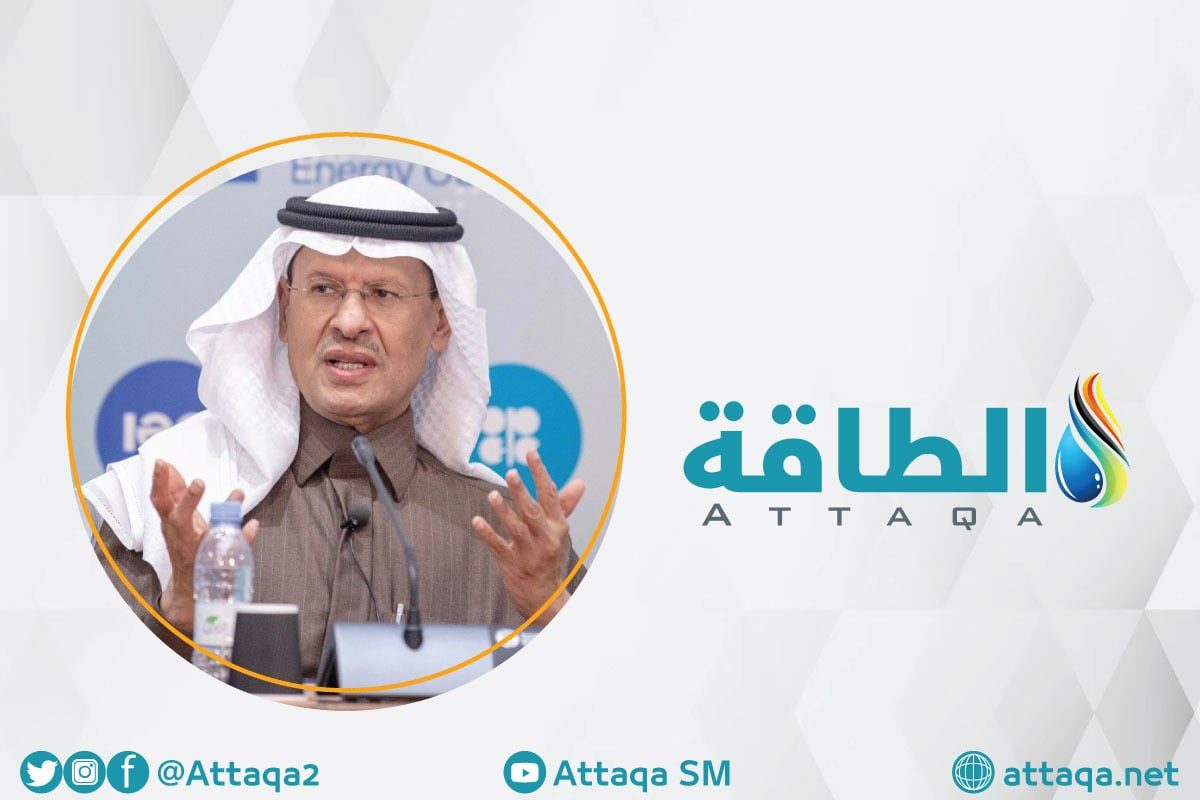Saudi Arabia threatened to stop oil exports if a price cap was imposed on its supplies to global markets, but it limited that to countries that adopt such a decision.
The Saudi threat came from the words of the Minister of Energy, Prince Abdulaziz bin Salman, in response to a question by “Energy Intelligence” about his opinion regarding the re-introduction of the “No to OPEC” bill, and about the price ceiling and its potential effects on the oil market, and if it can be implemented. Cap prices outside their current range.
The Saudi Energy Minister stressed that despite the great difference between the “No to OPEC” bill and the expansion of imposing a price ceiling, their potential impact on the oil market is similar.
The chief official in charge of the energy sector in Saudi Arabia stressed that such policies add new risks and greater ambiguity at a time when clarity and stability are most needed.
energy market turmoil
The Saudi Energy Minister said: “Such policies will inevitably exacerbate market instability and volatility, and this will negatively affect the oil industry. In return, OPEC + has done its best and succeeded in achieving stability and high transparency in the oil market, especially compared to all other commodity markets.
He added, “The (No to OPEC) bill does not take into account the importance of having a reserve of production capacity and the consequences of not having this reserve on the oil market, as the draft law weakens investments in oil production capacity, and it will also cause global supply to fall sharply below demand in the future, and the impact will be This is felt all over the world in producing and consuming countries as well as in the oil industry.”
He pointed out that this applies – also – to the price ceiling, whether it is imposed on a country or a group of countries, and on oil or any other commodity, as it will lead to an adverse reaction individually or collectively with unacceptable repercussions represented by large fluctuations and instability in the markets.
The Minister of Energy affirmed that “if a price cap is imposed on Saudi oil exports, we will not sell oil to any country that imposes a price cap on the Kingdom’s supplies, and we will reduce oil production, and I would not be surprised if other countries take the same action.”
OPEC + decisions
The Minister of Energy in Saudi Arabia, Prince Abdulaziz bin Salman, indicated that the OPEC + coalition adheres to the policy of reducing the production ceiling by two million barrels per day, starting from November (2022) and until the end of 2023.
Prince Abdulaziz bin Salman said, “It is not possible to form a future outlook on the oil market in light of the state of uncertainty that the global economy suffers from, and this means that the logical path for OPEC + is to stick to the production agreement agreed upon in October (2022),” according to the minister’s statements. Energy Intelligence website.
In response to a question about whether the OPEC + alliance will change policies and increase production, the Saudi Energy Minister said that there are many factors that affect market trends, and it is expected that the global economy will continue to grow during 2023 and 2024, but uncertainty still surrounds the pace of growth. .
In addition, the Chinese economy has witnessed a remarkable recovery after the coronavirus-related lockdowns, but the expected duration of the recovery is still undecided, he said.
The Saudi Energy Minister indicated that the economic recovery creates inflationary pressures, and this may prompt central banks to intensify their efforts to curb inflation.
Accordingly, the minister explained that the only logical course in such situations is to preserve the agreement concluded in October (2022) until the end of the current year (2023), stressing that they need to make sure that the positive indicators continue.
And he continued, “There are those who believe that we will amend the agreement before the end of 2023, but I tell them that you have to wait until Friday, December 29 (2023), in order to prove to them the extent of our commitment to the current agreement.”
Reserve production capacity
The Saudi Minister of Energy confirmed that the reserve of production capacity and global emergency stocks constitute a basic safety net for the oil market in the face of potential shocks.
“I have repeatedly warned that global demand growth will outpace the current level of global capacity reserves – Energy Intelligence estimates global production capacity reserves at about 2.5 million barrels per day – at a time when emergency reserves are at an all-time low,” he said.
Prince Abdulaziz bin Salman stressed that it is important to implement policies that support the investments required to increase production capacity in a timely manner, and to maintain levels of global emergency stocks to be sufficient and appropriate.
He revealed that the Kingdom proactively expanded its production capacity, reaching 13.3 million barrels per day by 2027, and work on this expansion is now in the engineering phase, and it is expected that the first increase of this expansion will come into force in 2025.
related topics..
Also read..

Leave a Reply